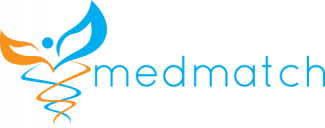Top 10 Must-Have Skills for Healthcare Professionals in the UK
July 31, 2023
Given the continuous rise in healthcare professionals within the field, it has become imperative to stay ahead and maintain your competitive edge. After all, your aspiration is to thrive in your current position, while also upholding the utmost commitment to delivering high-quality care.
Hence, we have compiled a list of 10 indispensable skills for healthcare professionals like yourself. These skills have consistently been emphasised by healthcare practices, and we believe you would find them invaluable as well!
Here are some of the essential skills they shared with us:
Exceptional communication skills.
Clear and effective communication skills are of paramount importance in the healthcare industry.
Good communication not only reduces the risk of errors but also ensures that critical information is conveyed accurately, empathetically, and thoughtfully, thereby ensuring that the right messages reach patients, families, and team members to facilitate informed decisions.

Teamwork makes the dream work
The significance of teamwork is essential, particularly in a collaborative field where all professionals work together; thus, being a cooperative team member becomes crucial. Encouraging and maintaining a team-oriented environment that fosters positive work conditions greatly facilitates the delivery of exceptional patient care.
Adaptability is key
In light of the ever-evolving technological advancements, embracing and adapting to these innovations is key. By doing so, not only are tasks streamlined, but it can also be used to empower and expand your current skill sets, a crucial aspect for thriving in this dynamic industry.
Effective time management
Efficient time management plays a critical role in ensuring that each patient receives the necessary attention, leading to better assessments, accurate diagnoses, and appropriate treatment planning.
Healthcare professionals often face demanding schedules and numerous responsibilities, making effective time management and task prioritisation vital to avoid overlooked communication, misplaced information, and unattended requests.
By skillfully organising their tasks, healthcare teams can boost productivity and promote seamless coordination among team members, thereby ensuring continuous and uninterrupted patient care.
Healthy coping mechanisms
Healthcare can be an undoubtedly high-pressure environment, requiring you to cope with stress effectively. Therefore, developing healthy coping mechanisms is crucial to maintain personal well-being and optimise the use of resources, resulting in reduced waiting times and improved overall operational efficiency.
By keeping patients satisfied, these efforts enable you to sustainably deliver quality care to those in need.
Professional development
In light of the rapid advancements in medical technology, being proficient in using various medical devices and software applications becomes exceedingly important.
Conducting thorough research and actively utilising new and updated materials enables you to stay informed on associated technologies and applications.
This, in turn, fosters enhanced patient care and streamlined workflows while also promoting continuous professional development, resulting in a wealth of knowledge and experience.
Pursuing a Level 3 Health and Social Care Diploma further supports this growth by providing essential skills and knowledge required to navigate the evolving healthcare landscape effectively.
Cultural competence
In a culturally diverse country like the UK, you will inevitably encounter patients from various ethnic backgrounds.
As a result, cultural competence becomes of utmost importance for healthcare professionals. It encompasses the understanding and respectful consideration of diverse beliefs and faiths, empowering them to provide care that is culturally sensitive and responsive to the unique needs of each individual.

Attention to detail
In the healthcare setting, even the tiniest oversight can have far-reaching consequences. This is why healthcare professionals must demonstrate excellent attention to detail, especially when it comes to tasks such as documenting patient information, administering medications accurately, and strictly adhering to protocols.
By upholding this level of meticulousness, you not only preserve patient trust but also ensure the safety and well-being of everyone under your care.
Critical thinking
Strong critical thinking skills are an absolute necessity for professionals in the healthcare industry. These skills empower you to assess complex situations, make well-informed decisions, and craft effective treatment plans that lead to the delivery of high-quality care.
The ability to analyse information critically and apply knowledge across different scenarios ensures you can tackle diverse challenges with competence and precision.
Ethical behaviour
Maintaining a commitment to high ethical standards is critical in the healthcare industry, and professionals must prioritise principles such as patient confidentiality, informed consent, and acting in the best interests of those under their care.
To achieve this, continuous learning about legal and non-legal regulations is imperative. This ongoing education ensures that healthcare professionals stay informed and can make decisions that align with both your patients’ well-being and the values of your organisation.


